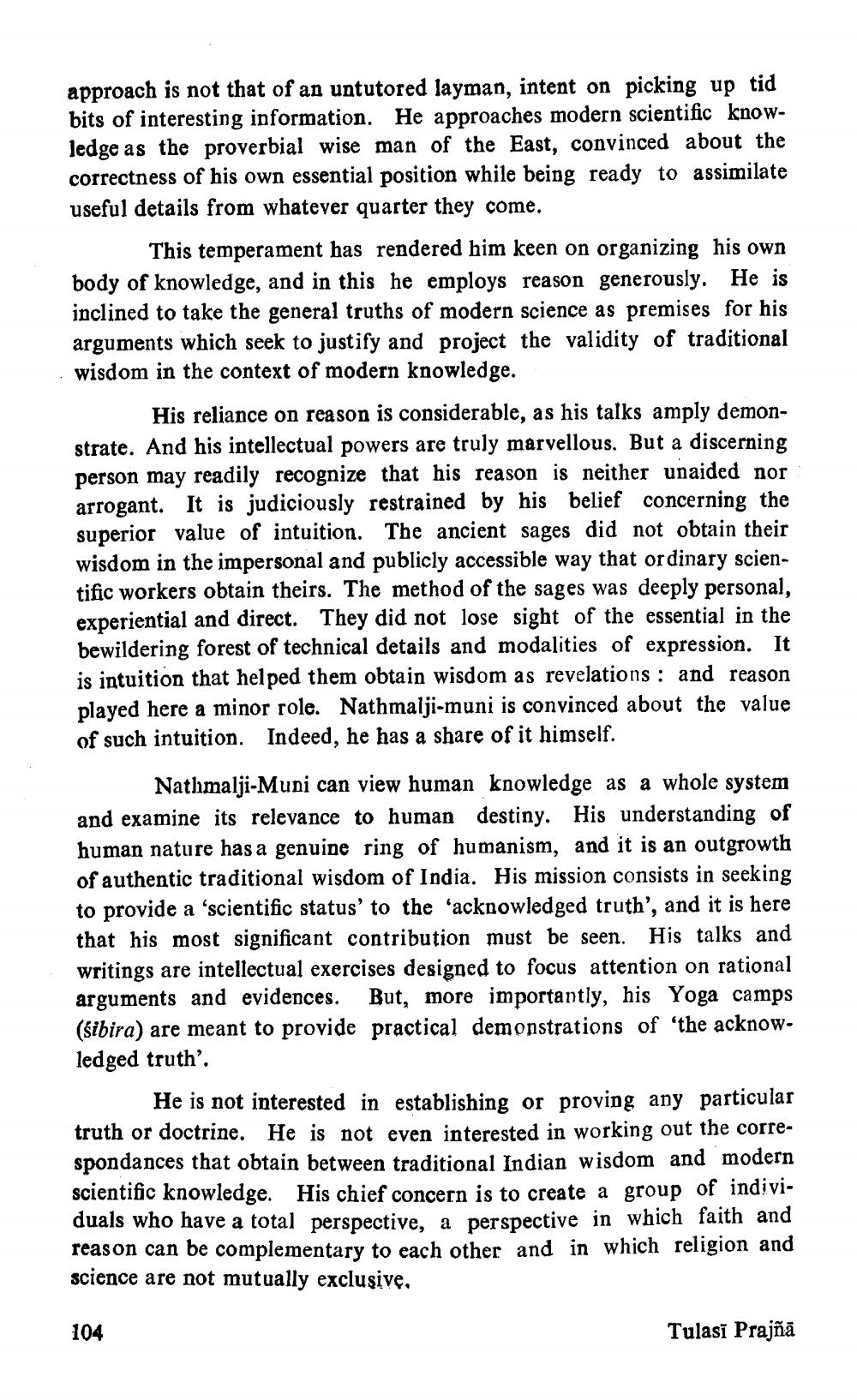________________
approach is not that of an untutored layman, intent on picking up tid bits of interesting information. He approaches modern scientific knowledge as the proverbial wise man of the East, convinced about the correctness of his own essential position while being ready to assimilate useful details from whatever quarter they come.
This temperament has rendered him keen on organizing his own body of knowledge, and in this he employs reason generously. He is inclined to take the general truths of modern science as premises for his arguments which seek to justify and project the validity of traditional wisdom in the context of modern knowledge.
His reliance on reason is considerable, as his talks amply demonstrate. And his intellectual powers are truly marvellous. But a discerning person may readily recognize that his reason is neither unaided nor arrogant. It is judiciously restrained by his belief concerning the superior value of intuition. The ancient sages did not obtain their wisdom in the impersonal and publicly accessible way that ordinary scientific workers obtain theirs. The method of the sages was deeply personal, experiential and direct. They did not lose sight of the essential in the bewildering forest of technical details and modalities of expression. It is intuition that helped them obtain wisdom as revelations and reason played here a minor role. Nathmalji-muni is convinced about the value of such intuition. Indeed, he has a share of it himself.
Nathmalji-Muni can view human knowledge as a whole system and examine its relevance to human destiny. His understanding of human nature has a genuine ring of humanism, and it is an outgrowth of authentic traditional wisdom of India. His mission consists in seeking to provide a 'scientific status' to the 'acknowledged truth', and it is here that his most significant contribution must be seen. His talks and writings are intellectual exercises designed to focus attention on rational arguments and evidences. But, more importantly, his Yoga camps (śibira) are meant to provide practical demonstrations of 'the acknowledged truth'.
He is not interested in establishing or proving any particular truth or doctrine. He is not even interested in working out the correspondances that obtain between traditional Indian wisdom and modern scientific knowledge. His chief concern is to create a group of individuals who have a total perspective, a perspective in which faith and reason can be complementary to each other and in which religion and science are not mutually exclusive.
104
Tulasi Prajñā




